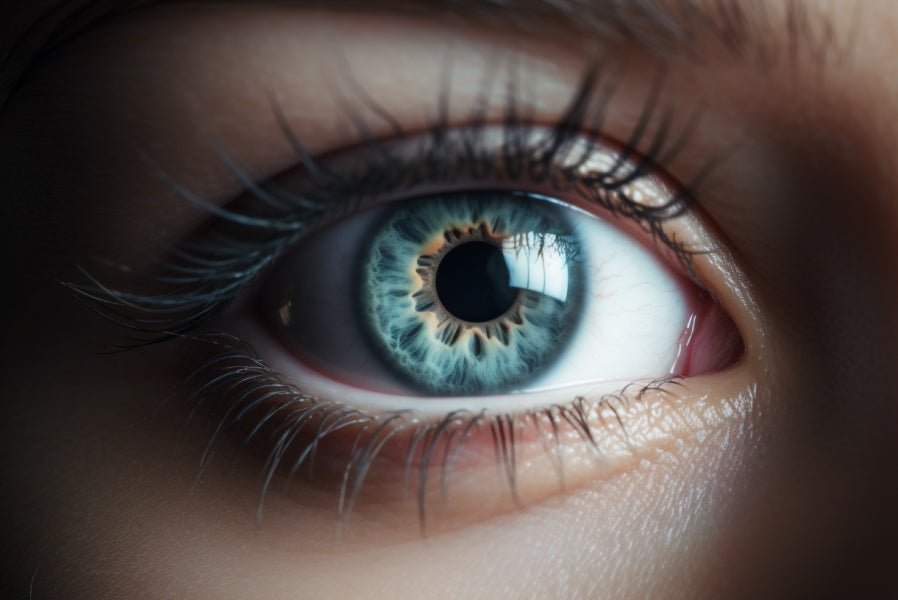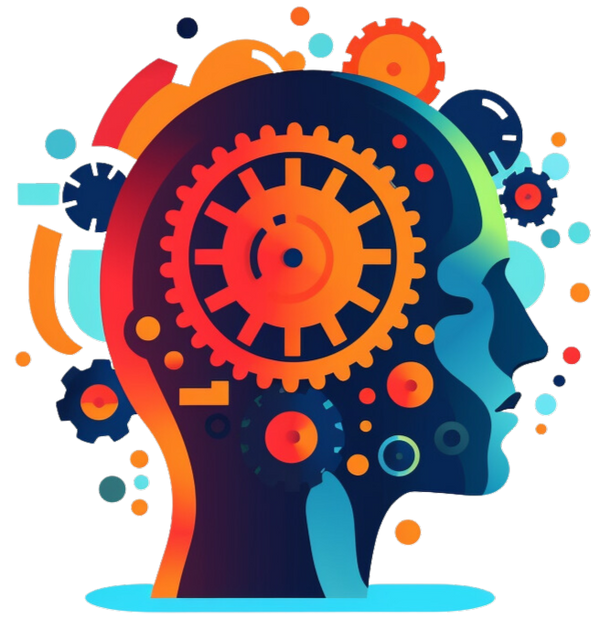
ADHD & Hyperfocus: When only one thing matters
Share
People with ADHD have "stress-mode attention." This is why they struggle with voluntary concentration. However, when they're passionate about something, they often become completely absorbed in it.
Not a disorder of attention, but a disorder of the ability to direct attention : that's probably the best way to summarize ADHD. It sounds complicated — and it is, especially since the human brain, with its approximately 100 billion neurons, is not a simple organ. Roughly speaking, in those affected by ADHD, the frontal attention system (frontal lobe) is impaired, while attention in the posterior parts of the brain is over-focused (receptive to all kinds of stimuli). This is a mode that neurotypical people experience almost exclusively in exceptional situations.

Posterior attention has biological priority...
"Concentrate, you just don't want to!" is therefore completely off the mark as advice for children with ADHD. This tip is about as useful as "eat with your feet if your hands are full." The reason: undirected attention from the back of the brain is a priority for the brain. It ensures its own survival . For example, a mother who is reading with concentration (> attention system in the frontal lobe active) will immediately jump up when she hears her baby crying in pain ( > attention system in the back of the brain active).

Hyperfocus: A frontal lobe running at full speed
The idea of a special ability to concentrate despite an attention deficit may seem contradictory at first glance. However, scientists at the "FMH Psychiatry and Psychotherapy" in Affoltern am Albis confirm that people with ADHD can develop a remarkable ability to concentrate if they are passionate about a task of their own accord. Hyperfocusing is a special form of concentration in which external stimuli are barely or completely ignored. Parents of ADHD children don't need a study to confirm this. They are familiar with their children's almost neurotic fascination with certain things, topics, and hobbies ("sticking with it longer" is another story...).

When people with ADHD develop a particular motivation for a particular task, they are able to grasp topics very quickly and work intensively and persistently without interruption. This is, in fact, the complete opposite of the phenomenon described in the first section. It's no wonder that neurotypical people struggle with these extreme contrasts. "Either the handbrake is on or full throttle and turbo." People with ADHD are likely to hear similar phrases from teachers or bosses many times over the course of their lives.
Hyperfocus requires a strong, eagerly anticipated stimulus. Psychologist Edmund Sonuga-Barke of the University of Southampton discovered as early as 1998 that the power of this motivation can enable children with ADHD to outperform their peers. Hyperfocus offers significant advantages, especially when a topic requires independent work. This could also explain why an above-average number of people with ADHD become self-employed and prefer flexible working hours.

Disadvantages of hyperfocus in ADHD
Naturally, despite all its benefits, focusing so intensely on one thing can lead to problems at work or in social interactions. The following are the most common challenges:
- Excessive concentration on those job elements that bring joy, while other aspects are neglected (especially routine tasks, administration, documentation, informing teammates)
- Getting into conflicts with your partner, friends or family members (because everything else is left undone because of a fascinating project, perhaps even appointments, parties or birthdays are forgotten)
- Problems giving priority to less exciting tasks over more interesting but less important activities (prioritization is consistently based on interest rather than urgency)
- Neglecting household tasks, billing, and other private obligations (classic: tax return is left pending until assessment and fines follow)
- Lack of time for rest and self-care activities (even forgetting to eat regularly, working late into the night, etc.)
- Little time for social contacts and family life (the project is given priority over social interaction, which is perceived as a disruption)
- Excessive workload due to impulsive decisions (people with ADHD tend to get even more stressed, even though they're already underwater. The main thing is to be interesting)
- Missing deadlines and meetings (meetings are completely lost in hyperfocus, as is the concept of time. The person is completely absorbed. 2 hours can seem like 20 minutes)

Tips for dealing with hyperfocus sustainably
Here are some simple—but powerful—steps you can take to guide your intense concentration and refocus your attention.
- Define clear goals and set priorities. Create a to-do list every morning.
- Mark all your to-dos according to their priority and urgency
- Break down large projects into smaller, more manageable tasks
- Estimate which activities will take up a particularly long time. Only plan them if you have enough time.
- Move non-urgent to-dos to a separate list for another day
- Organize your time with reminders, such as a visual timer . Set alarms to alert you when it's time to move on to another task.
- Ask a family member or friend for support to get you out of an activity that takes up too much of your time
- For long projects and time-consuming activities, incorporate regular 5- to 10-minute breaks. Ideally, combine these with short exercise sessions (stretching, 10-minute fitness sessions, walks, etc.).
- Set reminders and other "intrusive" notifications on your devices for meetings, etc. that you cannot miss/ignore
- See the extremely positive side of this gift: You are the woman/man needed when "fires need to be put out." Hardly anyone else possesses your great ability for calm concentration under extreme time pressure.
